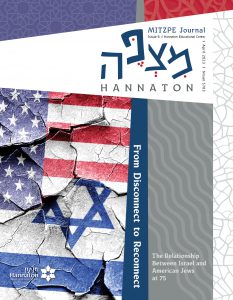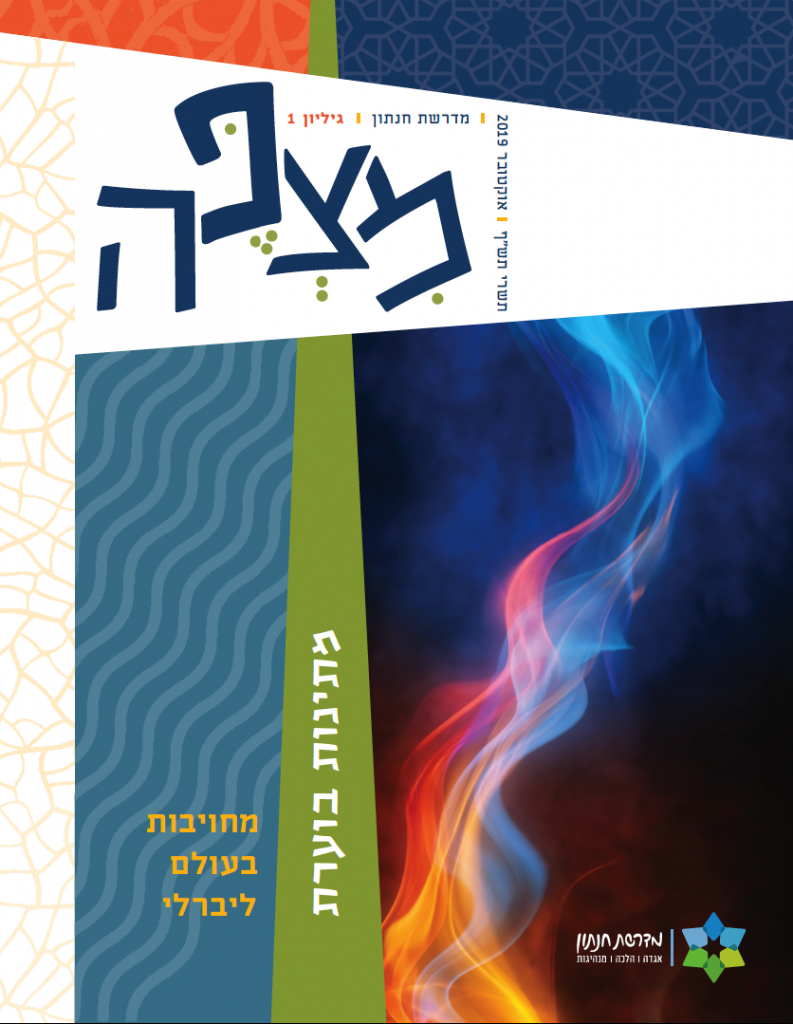I want to try to speak with you from the perspective of someone who is deeply embedded in the American Rabbinate, which is to say in Jewish life as it is lived in the United States, both from the perspective of ten years as a congregational rabbi in Orange County, California and, for the past 25 years, as the Dean of the Ziegler School of Rabbinic Studies at American Jewish University, USA and of the Zacharias Frankel College at University of Potsdam, Germany. You know that we Jews are a contentious group and we have strong opinions. So I want, in the spirit of an open dialogue, to affirm what I think are some areas of consensus, and where our discussion — all of us together — might proceed along fruitful lines.
By way of an introduction, let me say that I think there is a broad consensus in our love of Zion and our love for the land of Israel. That broad consensus continues to unite and inspire America’s rabbis and America’s Jews. Paradoxically, it is our love of Zion and our Jewish commitment that leads us to speak out when we have something to say. I’d imagine I was not the only American whose first response, upon hearing of another terrorist attack against Israeli civilians, or another missile lobbed against Israel’s cities, was to think about those poor victims, and that any thought about the political implications were secondary. I am sure I am not the only American whose best friend in college is now a citizen of the State of Israel, whose nephews and nieces are Israelis, who has aunts, uncles, and cousins in the State of Israel. The connections that link American Jewry and the State of Israel are very real and far more important than mere politics.
It is because of my commitment to my nieces and nephews that, when I have something to say, I need to say it. They tell me that the silence of American Jewry is putting their lives at risk. We have to be able, for the sake of our families and for the sake of our people, to have faith in the process of democracy (which thank God Israel is and thank God America is) to be able to speak our piece and to listen to other responsible viewpoints. We may differ as to how best to show our support for Israel. But we must show support for Israel, and on that imperative, I think there can be no question.
What is it that still unites us? I believe that I speak for my colleagues in the rabbinate and the Jewish community in the United States when I assert publicly and proudly that Israel has the right not only to exist, but also to thrive. The Jewish people, like all peoples of the world, have a right to national self-expression. But the nation of which we are part is larger than the State of Israel; it embodies all Jewish people everywhere. We all of us have a link to the land of Israel and to its government. We all have a right to be part of the on-going polity that is the Jewish people, which preceded the existence of the Third Jewish Commonwealth, which preceded the existence of the Second Jewish Commonwealth. It is the peoplehood of the Jewish people that created the State of Israel and not vice versa.
Another point of consensus: All Jews everywhere have a stake in what happens in Israel. There is a wonderful ancient Midrash that compares the Jewish people to a sheep, noting that when you strike any of the limbs of a sheep it bleats with its mouth. So too with us: when a Jew is hurt in Buenos Aires or Johannesburg or New York or Tel Aviv, Jews everywhere ought to cry out.
The third area of agreement: There is an ongoing war against the existence of the Jewish State, and an equally corrosive war of antisemitism against the living reality of the Jewish people. That war takes many forms: through diplomacy, the media, through military action, on social media and through acts of violence, including terror. All Jews everywhere have a moral obligation to stand in solidarity with Israel in the battle against that war.
Finally, there is a recognition (asserted by the Rabbis since the Emancipation) that Jewish survival will take place only if there are Jews who are educated in what it means to be Jewish, who are living their understandings of Judaism, however diverse. That is true whether you are in the galut of Phoenix or the galut of Tel Aviv. Regardless of where a Jew lives, without a Jewish education, without a commitment to living a Jewish life steeped in the best of our sources and embedded in the richness of our heritage, pursuing a life of justice, morality, and holiness, there isn’t sufficient cause for us to continue our endeavors.
Let me tell you a story along that line because it moves me exactly into what divides us: the Los Angeles Jewish Federation has a partnership with the City of Tel Aviv. Most years, we bring Israeli teenage students from Tichon Hadash to study in different schools throughout greater Los Angeles, both Jewish day schools and public schools. At a recent event, one of the girls got up to speak and she said as follows, “I am sixteen years old. The first time I stepped foot in a synagogue was when I went to Stephen Wise Temple in Los Angeles. It was great!” she said. “I can’t wait to tell all my friends back in Israel how wonderful it is inside synagogues.” Her comment made me think that perhaps we need to start flying young Israelis to the Diaspora to experience firsthand the many rich and divergent ways to live as Jews.
We have been living rich and meaningful Jewish lives in the Diaspora for over 2000 years. We have learned how to maintain and to build vibrant Jewish communities because we have been doing that for millennia. Don’t get me wrong: Israel is the crowning miracle of Jewish life in this century, and I am awe struck by the accomplishments of the State of Israel and its people. But the achievements of the Diaspora also have much to teach. What we need is a full partnership in which each of us recognize the wisdom and the insight that the other partner brings to the table. Rather than one side preaching to the other, we ought to be able to learn from each other, and to learn that sometimes what works in one place isn’t what works in the other.
In that regard, I must say that the issue of pluralism in Israel is, in my opinion, not simply an issue of misunderstanding. The fact that rabbis in Israel are funded or not because of their denomination, the fact that my colleagues with whom I went to rabbinical school are by law not allow to perform weddings or funerals in the Jewish State, threatens the unity of the Jewish people. It was the great Anatol France who commented that the majesty of the law is such that both rich and poor are prohibited from sleeping on park benches. To portray the lack of recognition of all streams of Jewish life in the State of Israel as simply a mutual misunderstanding is I believe, with all due respect, a distortion.
And then, finally, it is the great glory of the Torah — to which we owe our ultimate allegiance — that we are commanded to have mishpat echad, one standard of justice for all people. Alas, there are areas in Israeli civil life where that has not yet been realized (as indeed is true in every democracy including the United States). But one of the areas that divides us, then, is when we see areas in which those living in Israel and the Palestinian territories are treated unequally and we see the government— instead of defending them — attempting to maintain a status quo of inequality.
In that regard, special mention must be made of the continuing acts of vigilante violence against Palestinian farmers, families, and civilians. While acts of terror are real, and a Two State Solution may remain a distant aspiration, we must insist in the meantime that Israel apply its own laws to prevent and prosecute acts of settler violence against Palestinians attempting to harvest their own crops, play in their playgrounds and nature reserves, access jobs and travel for holidays. American Jews, like their Israeli family, are committed to the Torah’s injunction to justice equally for all the Land’s residents. In the current occupation, applying laws of equity, personal safety, and property ownership is the crucial path forward for any long-term solution and is essential to maintain strong support in the next generation of American Jews for the core vision of Zionism, which is national self-determination.
Israel and the Israelis aren’t going away. Palestine and the Palestinians aren’t going away. There is no military solution. The only way forward is for us to work together.
The future flows from these four bedrock insights. Our job is to embrace this reality, embolden others to link their aspirations to this reality, to block their fears from blinding them, both to these four insights’ inevitability but also to their desirability. After all, don’t we want an Israel that is a bulwark for Jewish vitality, security, and thriving? And don’t we also want an Israel that is a light to the nations, not only those distant, but first to its closest neighbors?
The only way to be effectively pro-Israel today is to do the slow, patient work of supporting Palestinians in their legitimate aspirations for peace and self-determination. Only those who find their way to support these two dreams as compatible and reinforcing will align with the work of a sustainable peace.
It is my prayer that this year sees a growing number of Israelis plant their Zionism in hope, generosity of spirit, and courage. Not constricted and desiccated by inherited fear, not captive to the worst excesses of its most militant enemies, but rather a Zionism always in search of allies, one that fosters common interest, one excited to create, with Palestinians, a regional hub of vitality, creativity, and expansiveness. Two states for two people, sharing a love of a common land.
In this work, Israeli and American Jews must advance a threefold agenda: asserting the right of the Jewish people to national self-determination in our ancestral homeland, affirming the Jewish love of an Israel that is democratic, pluralistic, and an incubator of the best of Jewish culture and creativity, and insisting that such a worthy Israel will best thrive when our Palestinian brothers and sisters can also express their own national self-determination in their own democratic, pluralistic framework.
I want to close where I began: Jewish life without the State of Israel is unthinkable. Israel is a great and ongoing blessing, and we must continue to stand in solidarity with the people and State of Israel. But solidarity means that we American Jews have to contribute not only our financial resources and our organizational skills, but also the benefits of our opinion, which Israelis are welcome to share or disregard as they choose. But there needs to be a willingness to listen to each other, to welcome diverse ways to love and support Israel and the whole Jewish people. There needs to be a free flowering discussion between our communities both of which are variegated and complex, neither one of which can be reduced to a single party line.





